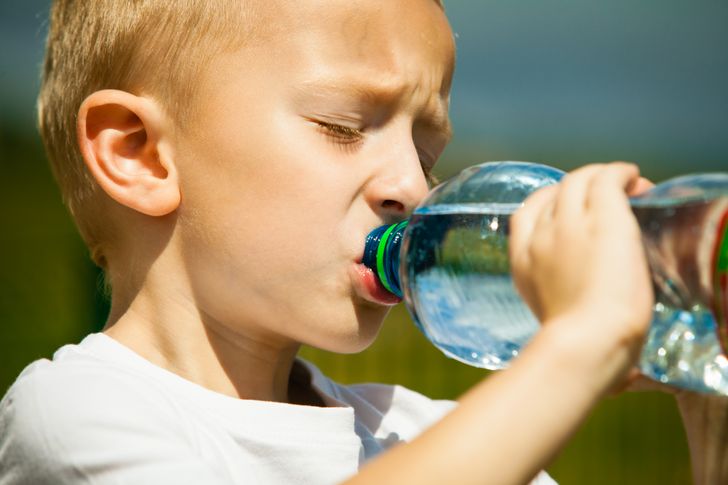In today’s fast-paced world, maintaining a healthy lifestyle is more challenging—and more important—than ever. For decades, conventional wisdom dictated strict rules for sleep, nutrition, and exercise. However, new research and modern health trends reveal that some of these time-honored guidelines no longer serve us well. In this article, we uncover 8 rules of a healthy lifestyle that don’t work anymore and explore innovative, science-backed alternatives to help you achieve optimal wellness.
As you read on, you’ll learn why practices such as sleeping for 8 hours straight or drinking exactly 2 liters of water per day might be outdated. We’ll also provide actionable tips and link to credible sources like Healthline and Mayo Clinic to help you make informed decisions. Let’s dive in and transform your health routine with modern insights and practical strategies.
Rules of a Healthy Lifestyle
Sleeping for 8 Hours Straight: Quality Over Quantity

For years, the mantra “8 hours of sleep” has dominated the wellness space. However, recent research indicates that the quality of sleep matters far more than the sheer number of hours. Studies suggest that segmented sleep or biphasic sleep patterns—where sleep is divided into two phases—can be just as restorative as a continuous 8-hour sleep session.
What’s Changed?
- Sleep Quality Over Quantity: Modern sleep science emphasizes the importance of deep sleep and REM cycles. Interruptions or fragmented sleep can sometimes yield better recovery than forcing 8 uninterrupted hours.
- Individual Differences: Genetics and lifestyle factors mean that some people naturally need slightly less or more sleep than the standard 8 hours.
- Biphasic and Polyphasic Sleep: Historical evidence shows that many cultures used segmented sleep patterns. Research from the Sleep Foundation highlights that what matters most is achieving restorative sleep cycles.
Modern Alternative
Focus on optimizing your sleep environment—maintain a cool, dark, and quiet room, and establish a consistent bedtime routine. Consider tracking your sleep quality using wearable devices to determine the optimal sleep duration for your body.
Eating a Big Breakfast: Embrace Intermittent Fasting and Nutrient Timing

For years, a hearty breakfast was seen as the cornerstone of a healthy diet. However, emerging research suggests that eating a large breakfast may not be as beneficial for everyone. Many health experts now recommend intermittent fasting or adjusting your meal timing based on your individual metabolic needs.
Key Considerations:
- Intermittent Fasting Benefits: Studies indicate that limiting your eating window can enhance fat burning, improve insulin sensitivity, and promote longevity.
- Nutrient Timing: Instead of consuming a massive breakfast, focus on balanced meals that provide sustained energy throughout the day.
- Personalized Nutrition: Your ideal breakfast might be lighter or heavier based on your daily activity levels and metabolic health.
Modern Alternative
Experiment with different eating patterns to find what works best for you. Consider trying intermittent fasting, where you may skip breakfast altogether or opt for a smaller, nutrient-dense meal. Resources like Healthline’s guide to intermittent fasting offer valuable insights into optimizing your meal timing.
Jogging in the Morning: Explore Varied Exercise Routines for Optimal Results
Jogging in the morning has long been touted as the ideal way to kickstart your metabolism. However, this one-size-fits-all approach doesn’t consider the diversity of fitness goals and body types. For some, vigorous morning cardio may not be the best method for boosting energy or achieving long-term fitness results.
Modern Insights:
- Exercise Timing: Recent studies suggest that the best time to exercise depends on your individual circadian rhythm and personal schedule.
- High-Intensity Alternatives: Instead of a steady jog, consider high-intensity interval training (HIIT) or strength training, which may yield better fat loss and muscle-building results.
- Personal Preference: If jogging feels exhausting or unenjoyable, find an activity that motivates you—whether it’s cycling, swimming, or even a brisk walk.
Modern Alternative
Experiment with varied workout routines throughout the day. Tailor your exercise regimen to include a mix of cardio, strength, and flexibility training. For more detailed guidance on optimizing your fitness routine, check out exercise recommendations from Mayo Clinic.
Avoiding Sweets Entirely: Balance and Moderation are Key

Conventional wisdom once urged us to completely avoid sweets for a healthy lifestyle. Yet, the complete elimination of all sugars—especially natural sugars found in fruits—can be both impractical and detrimental to mental satisfaction. Modern nutrition emphasizes balance over total deprivation.
What You Need to Know:
- Moderation is Essential: Rather than banning sweets, enjoy them in moderation as part of a balanced diet.
- Natural vs. Processed Sugars: Focus on natural sources of sugar, such as fruits, which come with beneficial fiber and antioxidants.
- Psychological Impact: Allowing yourself a small treat can prevent feelings of deprivation, which often lead to binge eating.
Modern Alternative
Adopt a balanced approach by including occasional treats in your diet while prioritizing whole, unprocessed foods. Websites like WebMD offer excellent advice on managing sugar intake without compromising overall health.
Training Until You Are Drained: Prioritize Recovery and Sustainable Workouts

The old adage of pushing your body to the brink of exhaustion is now recognized as a recipe for burnout and injury. Modern fitness experts emphasize the importance of balanced training routines and proper recovery to achieve lasting results.
Critical Points:
- Overtraining Risks: Exercising to the point of complete exhaustion can lead to injuries, hormonal imbalances, and chronic fatigue.
- Recovery Is Crucial: Adequate rest, sleep, and active recovery days are essential for muscle repair and growth.
- Sustainable Fitness: A well-rounded workout plan includes strength training, cardio, flexibility exercises, and rest.
Modern Alternative
Adopt a sustainable training approach that focuses on listening to your body. Incorporate rest days, stretch regularly, and consider consulting with a personal trainer to design a balanced routine. For further insights on recovery techniques, visit the American Council on Exercise.
Not Drinking Water During Meals: Hydration Aids Digestion
A long-held belief in the health community is that drinking water during meals dilutes digestive juices and hampers digestion. However, recent research suggests that staying hydrated during meals can actually aid digestion and improve nutrient absorption.
Debunking the Myth:
- Digestive Benefits: Water can help break down food more efficiently, ensuring smoother digestion.
- Hydration Matters: Adequate hydration is critical for overall health, especially during mealtime when the body is processing nutrients.
- Modern Research: Studies have shown that moderate water consumption with meals does not negatively affect digestion.
Modern Alternative
Feel free to drink water during your meals to stay hydrated and support digestive health. If you experience discomfort, consider sipping slowly rather than drinking large amounts at once. For more on hydration and digestion, check out guidelines from Harvard Health.
Brushing Your Teeth After Every Meal: Timing Is Everything

While good oral hygiene is vital, brushing your teeth immediately after every meal might not be the best practice. Over-brushing, especially right after consuming acidic foods, can lead to enamel erosion and gum irritation.
What the Experts Say:
- Enamel Erosion: Brushing immediately after eating can damage tooth enamel, particularly if you’ve consumed acidic foods or beverages.
- Optimal Timing: Dentists recommend waiting at least 30 minutes after a meal before brushing to allow saliva to neutralize acids.
- Balanced Oral Care: Maintaining a consistent oral hygiene routine, including flossing and using mouthwash, can protect your teeth without overdoing it.
Modern Alternative
Brush your teeth twice a day—morning and before bed—and wait 30 minutes after meals to brush. For detailed oral care tips, refer to recommendations from the American Dental Association.
Drinking 2 Liters of Water Per Day: Personalize Your Hydration Needs

The rule of drinking 2 liters of water per day (approximately 8 cups) is a common guideline, yet it doesn’t account for individual variations in body size, activity level, and climate. Hydration needs are highly personalized.
Key Considerations:
- Individual Variability: Factors such as exercise intensity, age, and environmental conditions can significantly impact your water needs.
- Listening to Your Body: Thirst is a reliable indicator—if you’re thirsty, it’s time to hydrate.
- Balanced Hydration: Instead of rigidly adhering to a fixed volume, focus on maintaining a consistent level of hydration that suits your personal lifestyle.
Modern Alternative
Customize your water intake based on your daily activities and listen to your body’s signals. Tools like hydration tracking apps can help you monitor your intake. For more personalized hydration advice, check out Mayo Clinic’s hydration guidelines.
Conclusion: Evolve Your Lifestyle with Modern Health Strategies
The landscape of health and wellness is continually evolving. What was once considered a gold standard may now be outdated or even counterproductive. By rethinking these 8 traditional rules—from the rigid sleep schedule to fixed hydration goals—you can create a more flexible, personalized approach to your health.
Modern research encourages us to focus on quality rather than strict adherence to old rules. Prioritize restorative sleep, balanced nutrition, varied exercise routines, and personalized self-care practices. Embrace modern health trends such as intermittent fasting, HIIT workouts, and mindful hydration to optimize your overall wellness and achieve lasting results.
As you update your lifestyle, remember that sustainable health is about listening to your body and adapting strategies to fit your unique needs. Explore reputable sources like Healthline, Mayo Clinic, and Harvard Health for further insights and evidence-based advice.
By breaking free from outdated rules and embracing new, flexible guidelines, you can empower yourself to achieve a truly healthy lifestyle in 2025 and beyond. Make informed changes today and experience the benefits of modern, science-backed wellness strategies that work for you.









